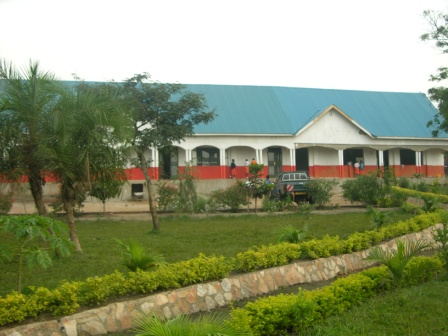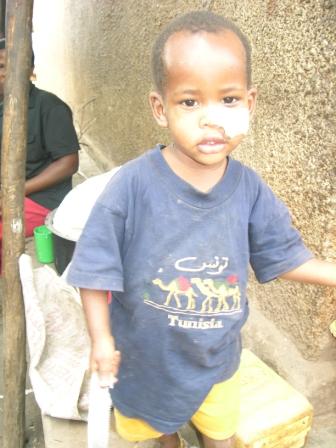|
NEGLECTING CHILDREN ,THE BIGGEST CRISIS
 Child neglect is the
biggest crisis facing the world. "It is even worse than corruption. Neglected children grew to become
armed robbers or street Child neglect is the
biggest crisis facing the world. "It is even worse than corruption. Neglected children grew to become
armed robbers or street
children. Neglected children end
up not going to school or dropping out early leading to future unskilled or
semi-skilled labour force. They therefore, are potentially trapped in poverty
circles since they are likely to attract very low pay wages that hardly cater
for their individual basic needs as well as for their immediate families.
 
The Extreme College school where our high school students are enrolled (located in Namayumba sub-county in Wakiso district)
God has commanded to care for and
advocate for them. Children are the sacrificial lambs when families breakdown.
Because they have no political right to be heard and no vote, they are usually marginalized
More than 150 million children
between the ages of five and 14 years work for a living in developing
countries, with half of the number working full time. About 1.8 million
children are also exploited in prostitution and pornography and 1.2 million
others become victims of trafficking annually
it’s the work of CCALP to serve as
an advocate for children to release them from their spiritual, economic, social
and physical poverty and to enable them to become responsible adults.
Child advocacy for us is the office
of raising awareness of the needs, neglect, nurture and the potentials of
children in poverty, whiles challenging those within our influence to greater
involvement and effectiveness on behalf of children.
CCALP is targeted to enroll 1000 children in more
than 30 government and private schools by 2013 and to develop and nurture the
child in physical, spiritual, emotional, mental and moral development.

Why CCALP
I always thought that beggars were those who were homeless – but these are not beggars. They are working children. These children work on the streets everyday and their number is increasing. I never saw these many beggars when I was growing up. Maybe it is the population. But now the street kids are everywhere, outside restaurants, outside malls and at traffic signals. Either begging or collecting scarps for selling Many children are selling scraps, but in my heart I feel angry with the parents for allowing this. At times I have seen that the parents are fit and fine and are simply using their kids.

some of the CCALP children enrolled at Nansana community primary school
CCALP is a recognized non-profit organization that provides programs and services in education and health to improve the well-being of children who face the harsh realities of poverty.
To carry out its mission, CCALP engages staff and volunteers who are trained to understand the positive impact that education and good health can have on children and on community.
CCALP will take its programs and services to any place where children are denied of education and health. It will train and engage a local group of staff and volunteers to work collaboratively with and within a community to help it overcome those factors that most impede social and economic wellbeing. In promoting hope, education, love and protection, HELP strives to make the world a better place and to make anyone associated with the organization better for that experience
Target group
-
Children living with HIV/AIDS
-
-
Street children
-
-
Children living in excessive poverty
-
-
Orphans and vulnerable children
-
-
Children selling scraps (children working on streets)
-
-
Working children (house girls, house boys, children working in stone quarries)
Every child has the right to education without discrimination. In Uganda, huge numbers of children are denied this right by their parents or guardian, yet the government of Uganda provides free education to every primary child
some guardian/ parents are ignoring the government schools, failing to provide adequate education for their children bright their future.
CCALP is calling upon the governments; donor’s to address grave violations of the right to education for Ugandan children.
Some reasons why children work on streets
Know that the street children are not always homeless, but simply poor like the majority of other children
They explain that l, their parents are unemployed. They send their kids to beg, collect and sell scraps because they know that children earn more money as people do not like to give to adults. Also, people look more kindly on child street hawkers, and as a result the kids earn more money.
What the rural poor who come in drove into the city need is proper training.
In Uganda children are seen as insurance policies. Hence the rush to get married early and have children so that they can be made to work and support the family. The parents who force the children to work have no shame because they are uneducated and have themselves done that for 12-15 years. So they think it is normal. |